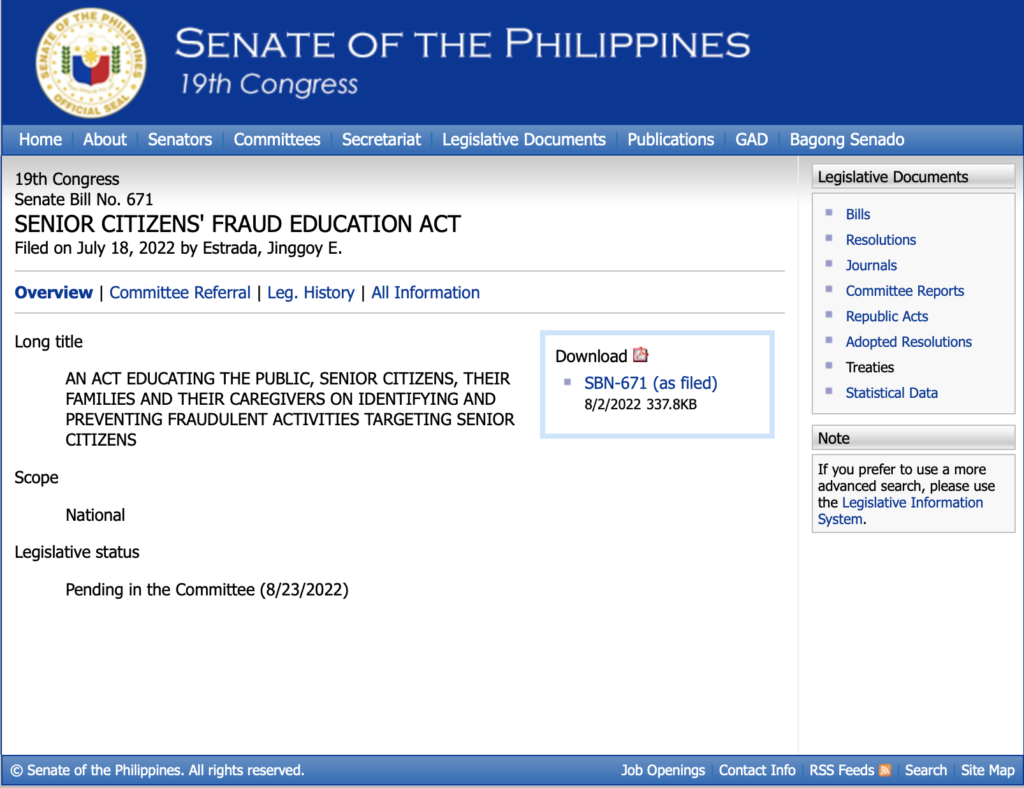A BILL seeking to protect senior citizens from cybercrimes such as text scams has been filed by Senator Jose “Jinggoy” Estrada.
In a statement yesterday, Estrada said he filed Senate Bill No. 671 or the “Senior Citizens’ Fraud Education Act” amid the “continuing proliferation of online crimes which increased at the height of the Covid-19 pandemic, targeting mostly retired elderly citizens”.

The Bill is aimed at creating an inter-agency centralised service that will provide senior citizens, their families and carers with regular information and updates to deter scammers from carrying out their schemes.
“There is no scammer if there is no one to scam. And no one will fall victim if they know the scammers’ schemes,” Estrada said.
He stressed that vulnerable sectors should be protected against fraudsters as he noted that most elderly consumers are unfamiliar with today’s technology.
Under the proposed measure, the Department of Trade and Industry (DTI) will be the lead agency and will be supported by the Department of Justice, Department of Health and the Philippine Postal Corporation.
The DTI will also collaborate with the Bangko Sentral ng Pilipinas, Securities and Exchange Commission, Insurance Commission, National Telecommunications Commission, National Bureau of Investigation and Philippine National Police in determining the various nature of scams and cybercrimes.
A website will also be maintained to help people identify fraud involving financial services, loan and investment products, insurance goods, text scams, and other illegal actions.
The Bankers Association of the Philippines (BAP) estimated that over a billion pesos (RM79mil) worth of hard-earned money went down the drain in 2021 due to fraud, including unauthorised bank withdrawals and fund transfers, as cybercriminals more aggressively prowled the digital space as locked-down consumers shifted to digital channels.
BAP cybersecurity committee vice-chair Ramon Jocson, who is also executive vice-president of Bank of the Philippine Islands, cited a study by Kaspersky estimating that one out of three Internet users in the Philippines had been scammed, alongside a separate study by Cisco estimating that 57% of all small and medium enterprises had been hacked or penetrated by fraudsters. — Philippine Daily Inquirer/ANN

